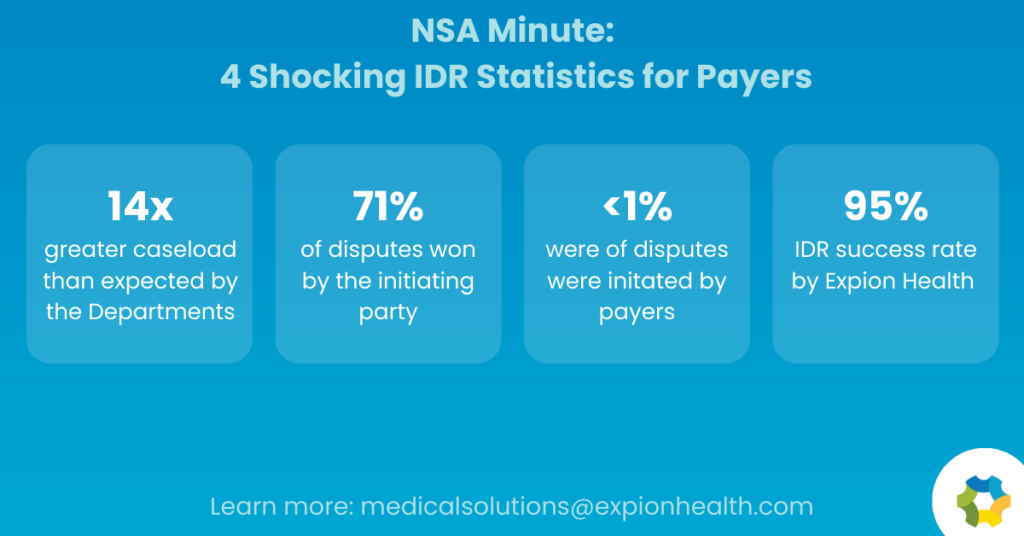
Independent dispute resolution (IDR) has gained remarkable popularity among healthcare providers since the implementation of the No Surprises Act (NSA). The statistics from the first year of the NSA reveal an unexpectedly high volume of IDR cases—14 times more than initially projected. As of March 31, 2023, IDR entities have issued a substantial 42,158 payment determinations, shedding light on the prevailing trends within this mechanism.
An analysis of these IDR outcomes demonstrates that the initiating party, typically the healthcare provider, emerges victorious in a significant majority of cases, with a success rate of 71%. In stark contrast, payers initiate fewer than 1% of disputes. Consequently, payers must bear not only the administrative costs, which start at $700 for the losing party, but also any awarded amounts to the providers. This additional expenditure significantly affects the medical loss ratio mandated under the Affordable Care Act, which necessitates a careful assessment of the financial implications for payers.
Furthermore, the data indicates a notable 53% increase in IDR disputes during the fourth quarter of 2022 compared to the preceding quarter. This upward trajectory highlights the growing likelihood of engaging in open negotiations and/or IDR for payers. As a result, it is crucial for payers to prepare themselves adequately to navigate these dispute resolution processes effectively.
At Expion Health, we take immense pride in our expertise and proven track record in IDR achieving a remarkable 95% success rate for IDR cases. If you are seeking to optimize your approach to NSA disputes, contact us today to learn about our NSA post-payment solutions.


